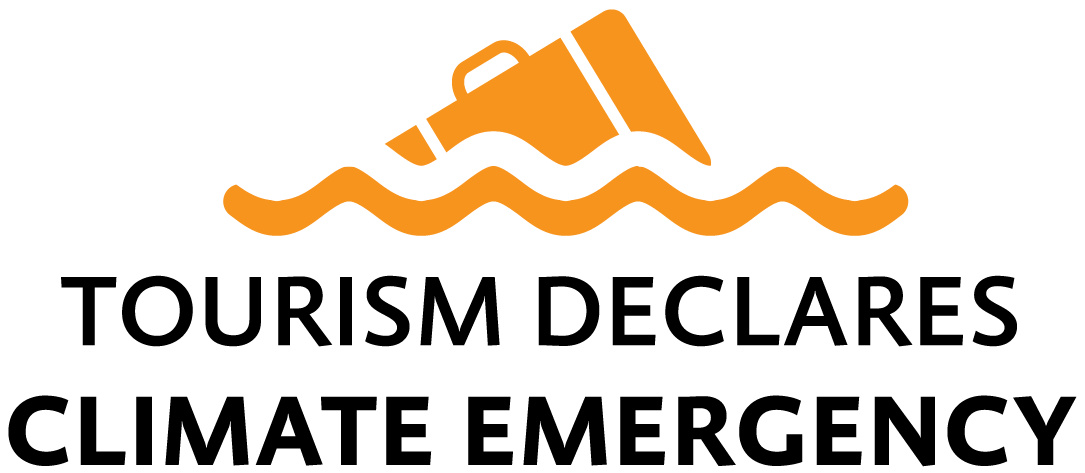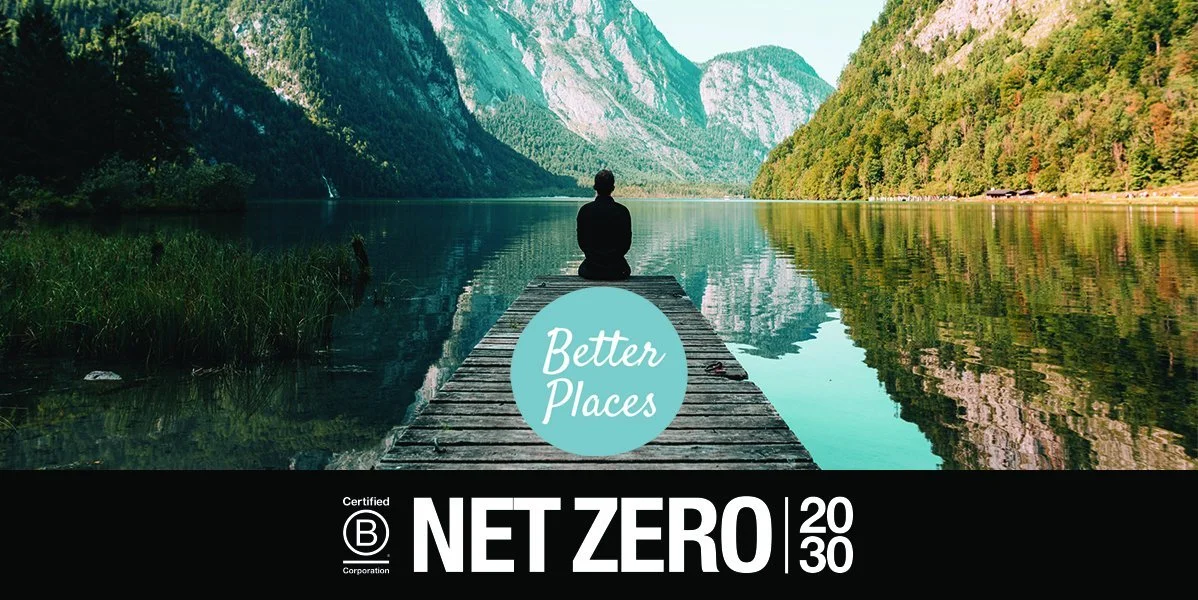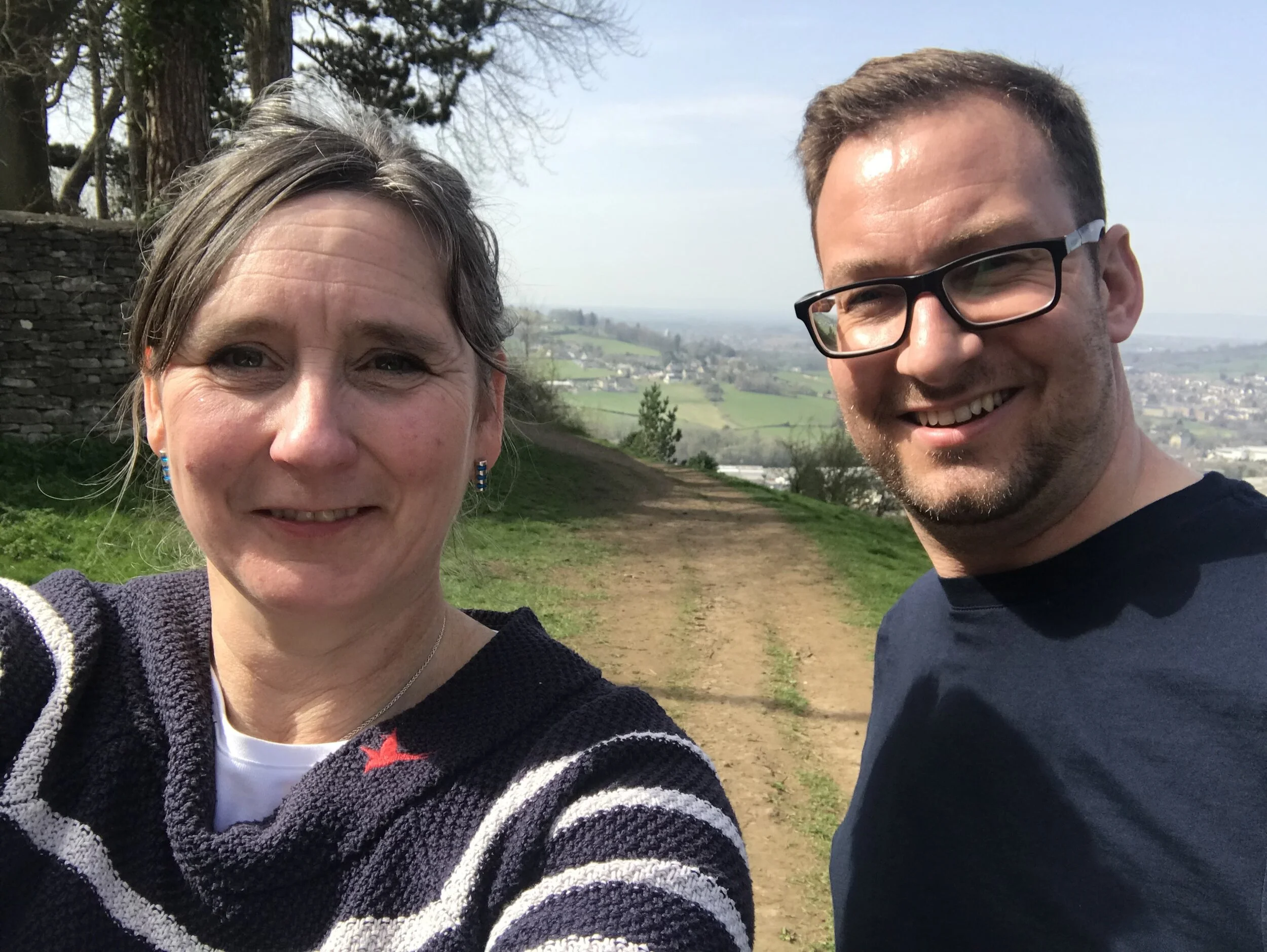Connecting people through rural adventures with Wilderness Scotland
Protecting the rural environment, economy and communities go hand-in-hand says Paul Easto, Co-Founder of Wilderness Scotland, Wilderness Ireland and Wilderness England, companies providing human-powered wilderness adventures. Here, Etain O’Carroll talks to Paul about his company’s motivations for declaring and what this has meant for them.
Why did you decide to make a declaration?
When we started the business 20 years ago the concept of sustainable or responsible tourism was in its infancy but the idea that tourism should work in a sustainable way was core to what we believed.
Making sure that our impact on local communities and environments was positive was the cornerstone of our business then and continues to be now. Over the past two decades, we’ve taken many actions to mitigate climate impacts but we felt that something significantly more needed to be done to recognise the urgency of the situation. We had long conversations with our team and other key stakeholders, and we decided to commit to declaring for that reason. We just wanted to put a line in the sand, step up and take this to the next level.
Are your staff supportive of the move?
To me, one of the most compelling reasons for taking climate action is the huge engagement we get from younger, environmentally conscious team members. We consistently get positive feedback on this; they want to be part of something bigger, and they want to be part of something with purpose.
It’s hugely motivational for younger employees in particular, and I think if there are any reservations about our action plan, it’s about how, as a relatively small business, we can achieve our goals.
There’s a long way between making a statement and actually realising some of the things that we want to do.
What challenges do you face in creating a Climate Action Plan?
The biggest challenge for all sides is around accurate measurement, particularly within the travel industry. Some things, such as the emissions from air travel, can be easily quantified but beyond that things get more nuanced with so many different types of accommodation, activity and food preferences. It’s almost too difficult and a lot of businesses are afraid to take action because of this.
My response to that is that you need to start somewhere and once you have a reasonable benchmark it gives you a mandate for action. Some of the things you can do can be really simple, so don’t be put off by the difficulties of measurement. Right now, that’s our focus: channelling our energies into getting the most accurate measurements possible so that we have a benchmark from which to improve.
Has making a declaration changed the way you work?
We moved into our new, carbon-neutral, net-zero premises around the same time as making our declaration and that was a really significant step for the business. We’re really proud of it, and although it was a major investment, we felt it was the right thing to do and will probably make good economic sense in the longer term. It also works as a reminder of the commitments we’ve made and how we want to extend that further into all aspects of our operations, particularly in the field.
What are your next steps?
In some ways, we’ve already done a lot of the easier stuff and now we’re into the bigger, more impactful things. We’re working towards making all our vehicle fleet electric and when we do that, that will be another huge step forward.
We need to complete our full footprinting exercise to identify the most significant improvements we can make in terms of carbon reduction. We want to tie in our efforts with the choices of travellers before they arrive in destination and provide a simple mechanism for carbon offsetting for overseas travellers.
We already record all the carbon outputs of our staff, right down to their daily commute, and that will form part of our overall benchmark for change. It’s great to see just how much low- or zero-carbon travel already takes place within the business but we can do more to raise awareness within the team and with our clients so that we can encourage behavioural shift.
How do your products reflect your low carbon strategy?
We have always pushed the human-power mode of travel and immersive, in-depth experiences. By doing that, we’re able to provide people with a genuinely local experience that provides a much better understanding of the destinations they visit.
We also operate a Conservation Contribution Scheme where we add a small amount to the booking at the time of purchase which raises money to support grassroots environmental charities that operate in our local area. We then visit the projects in the course of our trips and that provides an immediate connection between making a donation and seeing where that money goes.
It’s easy to operate and raises significant amounts for projects, but it also offers our clients first-hand experience of local conservation work and can positively shape their understanding and opinions for the future. Our staff also volunteer with our conservation partners which brings enormous benefits to wellbeing and their sense of contribution.
Your guides have Leave No Trace training. How has that changed how they work and the experience your clients have?
Many guides that come to us already have a grounding in low-impact travel but it’s important to have that same message being shared across all aspects of guiding and experiences. It opens our guests’ eyes when they see what Leave No Trace principles really mean in practice, and makes them think about things that they probably didn’t consider before. Often they leave looking at things in a completely different way, and this can change the way they choose to live once they return home.
How do you engage local people with what you’re doing?
Although our staff and guides have a deep affinity with the natural world, there’s real skill in being able to articulate that positively to our customers and our partners in the field. It’s something that we spend quite a lot of time on in training. It may be as simple as suggesting a different product to an accommodation provider or more significant things such as championing best practice by showcasing our partnerships at destination level.
We’ve always had a strong preference for supporting local businesses and that type of collaboration is really important to us, but not all businesses understand that tourism is a collective effort.
Sometimes they’re surprised or even wary of us when we want to understand how they work, but we’re certainly not going to dig ourselves out of the hole we’re currently in by working alone. It’s got to be done together.
I’m also concerned that the government doesn’t understand that the impact of this pandemic could be far greater in rural areas. For example, if say, a coffee shop closes down in a small community this year, it may take several years for another occupier to come in and replace that business. The coffee shop isn’t just a place to buy a hot drink though, it’s a central gathering place for the community that’s part of the fabric of local life, so it’s hugely important that we support them.
In the immediate future the tourism sector is going to need to work hard to recoup lost income, how can this be balanced with the need to take action on climate change?
I think we have to accept that to do good you’ve actually got to be in business. It’s going to be more of a challenge in the next few years as everyone in the industry is under such massive economic pressure, but I think it would surprise many businesses to hear that some of these actions can lead to immediate savings and that’s absolutely worth examining. Other things may be revenue- or cost-neutral but have longer-term benefits, and some changes require an intergenerational approach to see dividends. I think we all need to do what we can when we can.
We had planned to be climate positive by the end of 2021 but the pandemic has pushed everything back. We were at the point of kicking off detailed benchmarking work to figure out a carbon label for all our products, which was really exciting, but that’s been paused so I think it will just mean all our targets will take 12 months longer to achieve.
Do you think national tourism bodies are supportive of the type of change you see as essential?
Visit Scotland is the first national tourist board in the world to make a declaration, and is hoping to position the country as a globally recognised responsible travel destination. That move away from the mindset of value before volume means there are some hard choices to be made in the future about how we market Scotland as a destination and what products we’re pushing. Inevitably, it’s going to lead to some pretty significant changes and not everyone will be happy, but I think that the fact that we made a commitment is really exciting.













Students get access to a range of online modules which they complete alongside the rest of their travel group prior to departure. Two focus on the climate crisis.